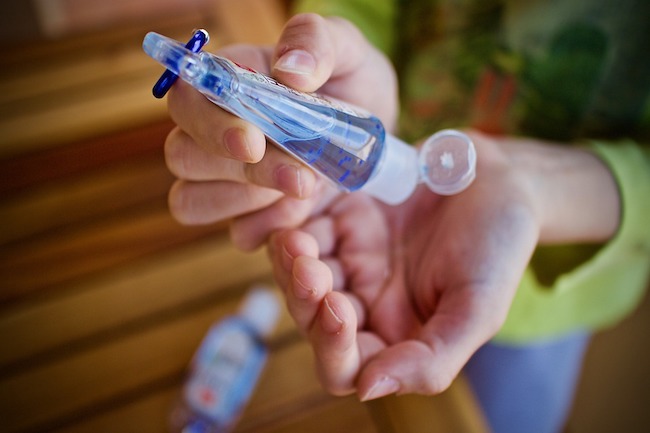5 Reasons Your Antibacterial Soap Is Doing More Harm Than Good by: Susan Patterson for Off The Grid News
Washing your hands is a good thing, this is true. However, we have become a culture that is so germaphobic that we may just be causing more harm than good. Everywhere you turn, you see antibacterial soaps, creams and wipes.
While keeping both your home and your body clean is one of the best ways to keep bacteria at bay, our society seems to think that washing regularly with soap just won’t do the job. To fix this, manufacturers have added antibacterial ingredients to just about everything, including lip gloss, soap, cream, sponges, household cleaners and even mattresses.
Amazingly, antibacterial chemicals are found in 75 percent of all liquid soaps and 30 percent of bar soaps.
Here are five reasons why you may want to re-evaluate the effectiveness of antibacterial products:
1. Overuse of antibacterial soaps may breed resistant bacteria.
We are presently in a crisis with overuse of antibiotics in this country, prescribing them when it is not necessary, and using too many of them and for all of the wrong reasons. This has led to superbugs that are resistant to antibiotics — which, in turn, makes a number of highly dangerous bacterial infections harder and harder to treat. The Centers for Disease Control and Prevention cautions doctors against overusing antibiotics. Concern about the overuse of antibiotics also has prompted the Food and Drug Administration to limit the amount of antibiotics that can be used in raising livestock.
Similarly, antibacterial soaps can actually make some bacteria stronger. In fact, there is some evidence that triclosan (in antibacterial soap) helps spread antibiotic-resistant bacteria. According to epidemiologist Allison Aiello from the University of Michigan School of Public Health, “Triclosan has a specific inhibitory target in bacteria similar to some antibiotics.” In a nutshell, when bacteria is exposed to triclosan, genetic mutations can arise.
2. Soap is just as good, without the side effects.
The Food and Drug Administration notes that there is no evidence that people who use products with triclosan are less likely to develop bacterial infections than those who use regular soap and water.




